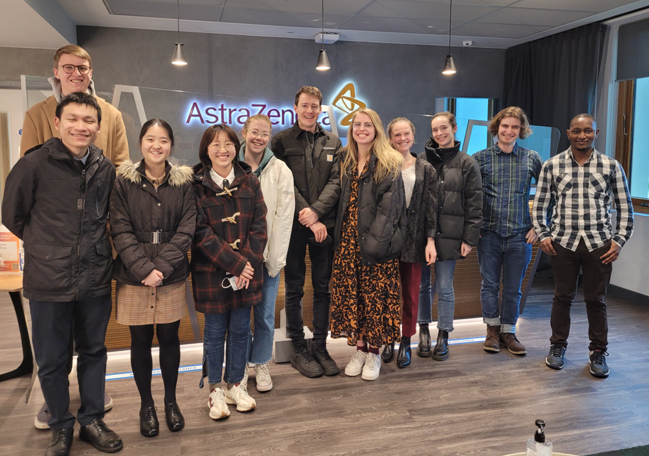Rob Fletcher’s PhD studies are about much more than achieving a qualification – they are about a sense of vocation.
A degree in Biological Sciences at Imperial College London gave him an interest in infectious disease, particularly in strategies to prevent viral transmission, after which he spent time working in a lab on a project exploring how influenza viruses evolve to become resistant to favipiravir.
This experience led on to a master’s at the University of Oxford, and working alongside leaders across a broad spectrum of non-communicable disease research, including cancer, cardiovascular disease, and chronic kidney disease.
Rob said: “I just found my vocation – using statistics to try and understand the burden of disease and health problems in different populations and how we can prevent them – and concurrently, how to design and conduct clinical trials for new medications.”
His own project involved using the China Kadoorie Biobank to develop risk prediction models for hip fractures in women in China. While hip fractures are not often prioritised in the context of disease prevention they can, especially in the elderly, have immense consequences for health and wellbeing.
Rob remained in Oxford after graduating and went into industry, working in a start-up (Sensyne Health) as part of a team helping NHS trusts improve their data infrastructure and the data they produce for research purposes. Rob was immensely proud of the work he did there and enjoyed the experience, but was keen to satisfy his own research ambitions.
He said: “I worked with some of the smartest, most lovely people that I’ve ever worked with in my life. It was a blisteringly fast-paced environment and was massively valuable in terms of my skill set. But what I really wanted to do after this experience was to go back to academia and conduct my own research that helps people afflicted by disease globally.”
Joining the George Institute for Global Health in Australia, and working on cardiovascular and kidney outcome trials of SGLT2 inhibitors as well as the assessment of the utility of routine mammography to screen for cardiovascular disease in women, confirmed to Rob that his future lay in health data research.
His PhD is likely to build on his experience in cardiorenal health – he plans to carry out a research project using data sets from the UK, Sweden and Australia to better characterise heart failure subtypes. Different subtypes of heart failure are known to respond better to guideline directed medical therapy, so the better the understanding of a patient’s condition, the more effectively they can be treated.
Rob says: “I’ve never quite known what my niche is but now I do. The experience I’ve had over the last year, the topics I’ve worked on, and the people I’ve worked with, have massively informed my passion and my calling in a specific topic and area.”


